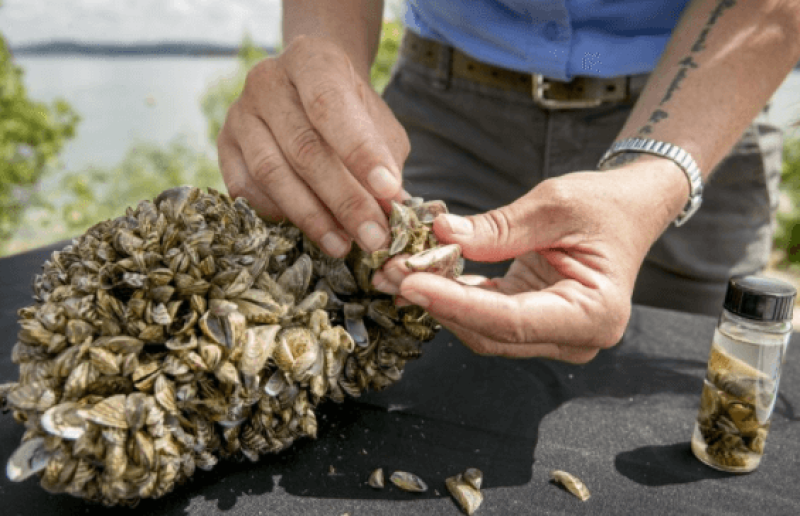[Kenny Beckman’s lab at the University of Minnesota] expects to release…the first ever sequence of the entire genome of the highly invasive [zebra mussel] . Researchers say it will be a major advance in the race to unleash sophisticated chemical, biological and genetic weapons against a foe that, in the 25 years since it appeared in Minnesota’s lakes and rivers, has been pursued mostly by boat inspectors and specially trained dogs.
…
Hypothetically, gene splicing could create mutant zebra mussels that are unable to produce female offspring. Released into a lake with wild zebra mussels, their offspring would inherit the broken gene, and eventually the mussels would be daughterless and die out without endangering non-target species.
…
[DNR research scientist Gary Montz], an expert on aquatic invertebrates, believes the breadth of research underway can stop an all-out eruption of zebra mussels across thousands of Minnesota’s pristine waterways. Until then, the more lakes they invade, the harder it will be to wipe them out, he said.
“A lot of people have spent a lot of time and a lot of money looking for that silver bullet and we still don’t have it,” Montz said.
The GLP aggregated and excerpted this article to reflect the diversity of news, opinion and analysis. Read full, original post: Meet the scientists fighting the spread of zebra mussels in Minnesota































